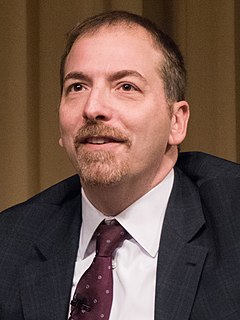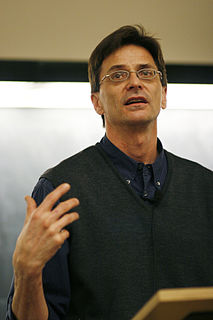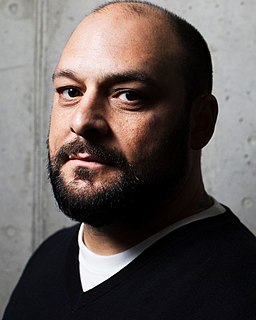A Quote by Ta-Nehisi Coates
The symbolic power of Barack Obama's presidency - that whiteness was no longer strong enough to prevent peons taking up residence in the castle - assaulted the most deeply rooted notions of white supremacy and instilled fear in its adherents and beneficiaries.
Related Quotes
One of the things that you come pretty early on to understand in this job, and you start figuring out even during the course of the campaign, is that there's Barack Obama the person and there's Barack Obama the symbol, or the office holder, or what people are seeing on television, or just a representative of power. And so when people criticize or respond negatively to me, usually they're responding to this character that they're seeing on TV called Barack Obama, or to the office of the presidency and the White House and what that represents.
I'm just challenging white supremacy at its intellectual heart every day. It's a pedagogy that I deploy against some of the most vicious resistance to blackness that whiteness is able to throw up. I engage in a lot of intellectual combat with supremacists and with the predicate of white supremacy and white indifference to black identity, and brown and red and yellow identity too, for that matter.
If we're united, I wouldn't care about a White school board getting me a little something. The hell with the school board; that's the White supremacy board and the White supremacy board wants you reading stupid books rooted in the idea of White supremacy. I don't want a thing to do with White supremacy.
I believe that also it should be stressed and made clear that our antagonistic position is not to say "I don't like whites" for the simple fact of not liking white people. It's like, our fight is not against the white person per se, but against the exercises of white supremacy and the form in which whiteness and the politics of whiteness operates.
Barack Obama's official nomination as the Democratic Party's standard-bearer was a very poignant moment for millions of Americans. As the first non-white major party nominee, Obama is carrying a big load on his shoulders. He's holding the hopes and dreams of a lot of folks who thought the presidency was only reserved for white men.
We're all in the race game, so to speak, either consciously or unconsciously. We can overtly support white-supremacist racial projects. We can reject white supremacy and support racial projects aimed at a democratic distibution of power and a just distribution of resources. Or we can claim to not be interested in race, in which case we almost certainly will end up tacitly supporting white supremacy by virtue of our unwillingness to confront it. In a society in which white supremacy has structured every aspect of our world, there can be no claim to neutrality.
Chicago has always been a very segregated city and Mt. Greenwood is an example of that. I can't say I've seen organized white-supremacist growth, but I have seen racial tensions increase. I think we've all seen that. In the Barack Obama presidency, especially, the far right has considered diversity a code word for white genocide.
Barack Obamas official nomination as the Democratic Partys standard-bearer was a very poignant moment for millions of Americans. As the first non-white major party nominee, Obama is carrying a big load on his shoulders. Hes holding the hopes and dreams of a lot of folks who thought the presidency was only reserved for white men.






























